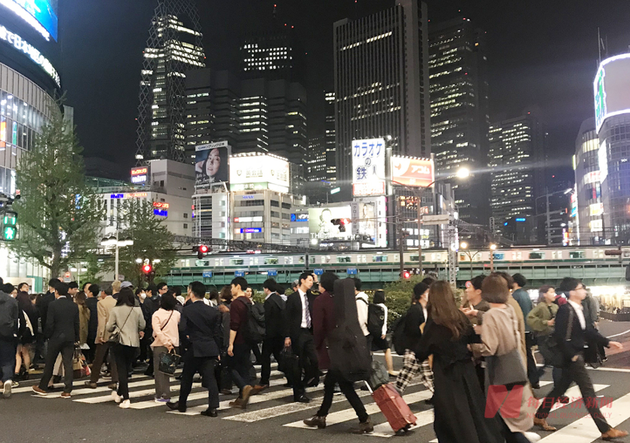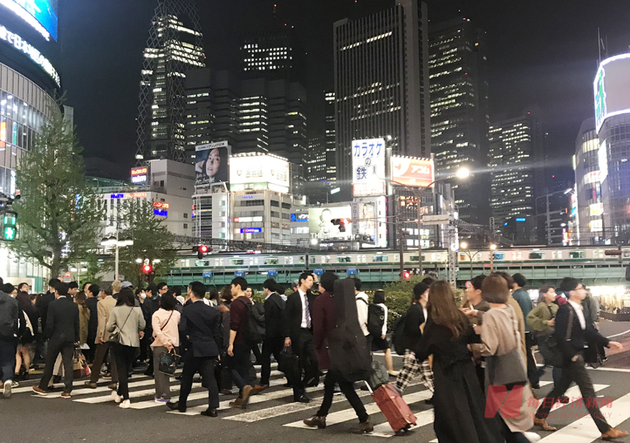
At the end of June, Richard Koo, Chief Economist at the Nomura Research Institute delivered a speech, reviewing the root causes of Japan's recession on its balance sheet and providing analysis and recommendations on China's current economic situation.
This speech sparked heated discussions in the economic research community. According to incomplete statistics from National Business Daily (NBD), as of July 12, more than 10 articles have been written by China's top domestic economists, financial scholars, financial journalists, and columnists, engaging in debates with Richard Koo from various perspectives.
In an interview with NBD, Nie Huihua, a professor of school of econimics at Renmin University of China, believes that Richard Koo saw the phenomenon of the Japanese economy, but did not find the real cause. The so-called "balance sheet recession" has a logical contradiction, and its "debt minimization" theoretical hypothesis is even deviated from the mainstream of economics for hundreds of years.
As for some people who are concerned about whether Richard Koo's theory is applicable to China, Nie Huihua stressed that the national conditions of China and Japan are very different, and it is impossible to make a simple comparison. The Chinese government has a strong regulatory ability, and asset prices will not fluctuate greatly.

Photo/Yu Ruijun (NBD)
Debt minimization theory deviated from mainstream of economics for hundreds of years
NBD: Richard Koo's theory holds that Japanese companies fell into technical bankruptcy after the bursting of the bubble economy, but they still have the ability to make profits, so they will choose to quietly repay their debts and repair their balance sheets, rather than declare bankruptcy directly. This point has been questioned by many economists. What do you think are the main problems?
Nie Huihua: The biggest flaw is logical contradiction, and it also lacks micro-foundation.
Because the premise for his theory to be established is that there is information asymmetry between the government, banks and enterprises. The government and banks do not know that the balance sheets of enterprises have been damaged, so enterprises will quietly repay their debts.
However, this is fundamentally impossible in Japan, because Japan has a main bank system (that is, the main bank of an enterprise is not simply a financial institution that provides funding, but forms a very deep comprehensive transaction relationship with the enterprise through cross-shareholding and other methods), and enterprises and banks have very close exchanges. The government is also aware of the situation, so this premise is not established.
On the other hand, if banks know that the profit prospects of enterprises are good, they should support enterprises to expand investment and earn more money to repay their debts. Enterprises do not need to repay their debts all the time. Where is there debt minimization?
In addition, this theory provides a lot of macro-data on currency issuance and economic stimulus, but no micro-data. He wants to say that enterprises still have the ability to make profits, and the market environment is also good, but the debt is relatively high, so enterprises repay their debts when they make money. The problem is that he has not shown any evidence to prove that Japanese enterprises still have good profit prospects after the bursting of the bubble economy.

Photo/Screenshot
NBD: You just mentioned debt minimization. Richard Koo divides the economy into two cycles, yin and yang, and in these two cycles, enterprises respectively pursue profit maximization and debt minimization goals. Is this theoretical assumption reasonable?
Nie Huihua: Apart from state-owned enterprises or non-profit organizations, no enterprise will deviate from profit maximization. The reason is very simple. If two enterprises have one goal of profit maximization and one does not, the first enterprise will certainly defeat the second enterprise, or even acquire the second enterprise. Therefore, any assumption that deviates from profit maximization is generally wrong.
Profit maximization is one of the most important assumptions on corporate behavior, and it can be said that it is the foundation of microeconomics. You can understand it as the rational person assumption, if you assume that people are not rational, many rules will not exist. Unlike macroeconomics, which has many schools of thought, microeconomics is very consistent on the core, which is the result of the efforts of countless scholars for hundreds of years. It is meaningless to start a new pot, and I believe it will fail.
NBD: If Richard Koo's theory cannot explain the long-term stagnation of the Japanese economy, what do you think are the aspects that should be considered to understand the Japanese situation?
Nie Huihua: I think he just pointed out the phenomenon, but it does not mean that the reasons he put forward are correct. Just like finding that someone is sick does not require a very profound academic level, because seeing someone walk wobbly, in a very bad mood, or vomiting, you can know, but it does not mean that he can accurately say the cause.
I have communicated with Japanese experts, and in general, there are three possible factors.
The first is the scar effect after the asset bubble burst. Think about it, as Richard Koo wrote in his book, the price of Japanese commercial real estate fell by 87%. If a person's assets fall by 87%, how can he dare to consume? This is the so-called scar effect.
The second is the lack of domestic demand due to population decline. Japan has been in a state of population decline and aging for a long time. In a country with an aging population, it is unlikely to innovate, because young people like new things. For example, the elderly cannot even use the new mobile phones, so population is a very important factor.
The third point is a factor that some scholars have not paid attention to, but I have been thinking about it recently. Japan began to decline in the 1990s, and China began to rise around 1992. The time is very close. At that time, China was desperately developing export-oriented industries, and the large-scale development of manufacturing and processing industries to some extent filled the gap in Japan. Because Europe and the United States need to find a place to produce cheap and good things, China just undertakes such a responsibility, and then after China's accession to the WTO in 2001, it is even more powerful. From then on, China embarked on the road of integration into the world division of labor. Therefore, the rise of China makes it difficult for Japan to fully "recover".
China and Japan have very different economic environments, and it is impossible to apply one country's experience to the other
NBD: Richard Koo believes that the balance sheet recession can not only explain the situation in Japan, but also be used to understand the Great Depression of 1929 and the 2008 financial crisis in the United States. Do you think it has such explanatory power?
Nie Huihua: The academic community has very mature research on the Great Depression in the United States. Richard Koo said that Bernanke highly praised his research, but Bernanke had a paper summarizing the causes of the Great Depression as early as 1995, and (as the chairman of the Federal Reserve in dealing with the financial crisis) did so. Almost all scholars agree that the Great Depression of that year was due to the late and wrong direction of monetary policy. At the beginning, the money supply was tightened, which led to a worsening of the recession, and then slowly relaxed a little bit. Therefore, the United States has never had a Great Depression since then, because every time there is a financial crisis, it is very active in saving the market.
There are many related academic papers in the academic community, but Richard Koo is an investment banker economist, does not do academic research, and does not publish academic papers, so he should be called an economic adviser or economic analyst.
NBD: Although Richard Koo's theory may have its own shortcomings, does it have a positive contribution to the field of economics?
Nie Huihua: His theory has attracted everyone's attention to Japan's recession, which is of course a good thing. He also caused research on the comparison between China and Japan, which is also a good thing. A scholar's point of view may not be correct, but he can raise discussions and raise everyone's attention to a very important issue. This is itself an important contribution.
NBD: Indeed, Richard Koo's theory and recent speeches have aroused much discussion in the domestic economic circle, focusing on whether his theory is applicable to the situation in China. What do you think about this question?
Nie Huihua: Indeed, Japan's population decline and aging are easily resonate with Chinese people, but I do not agree with this comparison.
First of all, China's regulatory ability is very strong, and it is very unlikely that asset prices will fluctuate greatly. The most important asset for Chinese people is real estate. When did the price of real estate experience a long and intense decline? In fact, China's real estate prices have always been relatively stable, and stocks are only held by a small number of people, so there is no significant shrinkage in the asset side.
In addition, China has a strong and large market, and the domestic demand itself is large enough to prevent a sharp recession. We also have a complete industrial system, manufacturing is very developed, and the industrial chain is relatively long, which can solve the employment of many people to a certain extent.
NBD: Richard Koo believes that based on the balance sheet theory, the Chinese government should increase fiscal spending, and this is the most effective policy. Do you agree with this view?
Nie Huihua: In fact, China's fiscal policy has been stimulating, for example, data released by the Ministry of Water Resources on July 12 showed that in the first half of 2023, the country's newly started water conservancy projects were 17,600, with an investment scale of 72.08 billion yuan, and the newly started major water conservancy projects were the most in the same period in history. We have invested a lot of money in infrastructure in the past, but this type of investment has the problem of low investment efficiency and slow recovery, and the effect is not very obvious.
I believe that China's most important need now is to stabilize expectations, stabilize confidence, and stabilize direction.


 川公网安备 51019002001991号
川公网安备 51019002001991号





